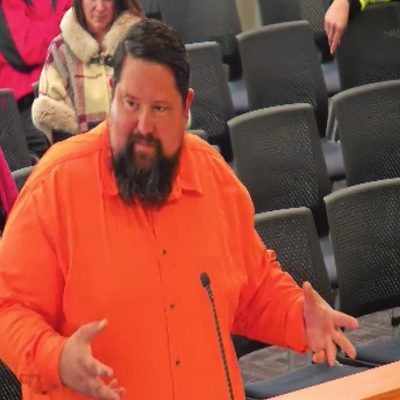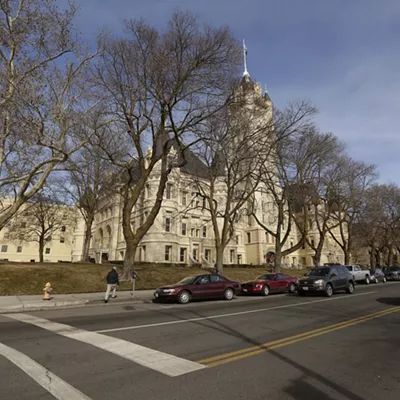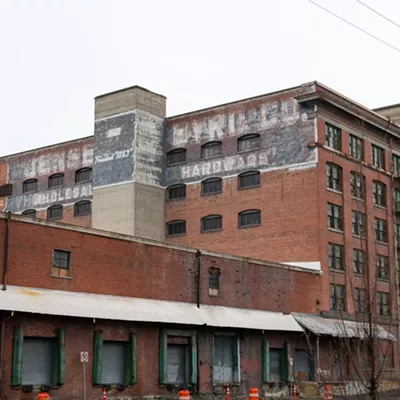In early October, Spokane City Council members decided to wade into one of the world's longest-running and most contentious international conflicts.
Months later, they still haven't heard the end of it.
It started with a resolution City Council members passed unanimously on Oct. 9, two days after Hamas militants attacked Israel. The resolution condemned the attack and supported Israel's right to "exist and defend itself."
At subsequent City Council meetings, pro-Palestinian activists have staged rallies outside City Hall and packed public comment sessions with calls for City Council to rescind the resolution, which was introduced at the last minute with little public notice. The activists say the resolution was "racist" and lacking context about the Israeli government's historic violence against Palestinians and the rapidly worsening humanitarian crisis and civilian death toll in Gaza.
As protests continue into the new year, council members are hoping to ease tensions with a new resolution — this time with input from a committee comprised of representatives from various Jewish, Muslim and activist groups.
"I think that'll help us move forward as a community," says Council member Zack Zappone, who helped mediate the community meetings.
The draft version of the resolution — which is slated for a vote on Jan. 22 — treads carefully, and is unlikely to satisfy everyone.
'SUSTAINED PEACE' OR A 'CEASE-FIRE'?
The new resolution says peace, freedom, safety and the sanctity of human life are good. Bigotry, violence and civilian deaths are bad.
It calls for the release of civilians who are held hostage or unlawfully detained, and for the safe return for people displaced from their homes. It reaffirms Spokane's commitment to fighting antisemitism and Islamophobia.
The resolution does not call for a cease-fire or an end to U.S. military aid to Israel, as many activists have been demanding.
Zach McGuckin, a member of the Party for Socialism and Liberation who helped organize recent pro-Palestine protests at City Hall, was one of the community members brought on to give input on the new resolution. He says the current draft is better than the resolution passed in October, but still inadequate.
"These committees are, by design, to produce middle of the road resolutions that don't say anything worthwhile," McGuckin says. "When they pass this, it's going to be an improvement, but it's not what [we] need."
The October resolution that kicked off months of protest was written by Council member Jonathan Bingle. He says the recent community meetings were at times contentious, but he ultimately thinks they resulted in good conversations.
"If you can get Zionists and anti-Zionists to agree on anything, you've done a pretty good job," Bingle says.
The meetings have included representatives from Chabad of Spokane, Temple Beth Shalom, Spokane Community Against Racism, the Peace and Justice Action League, Muslims for Community Action and Support, Spokane 4 Palestine, the Party for Socialism and Liberation and other groups.
Bingle says he's mostly fine with the new proposed resolution, but he does have concerns about a line that calls on local, state and federal officials to support "efforts towards immediate and sustained peace in Israel and Palestine that recognizes the liberty and shared humanity of all Israelis and Palestinians."
"That feels like a cease-fire call, which I don't support," Bingle says.
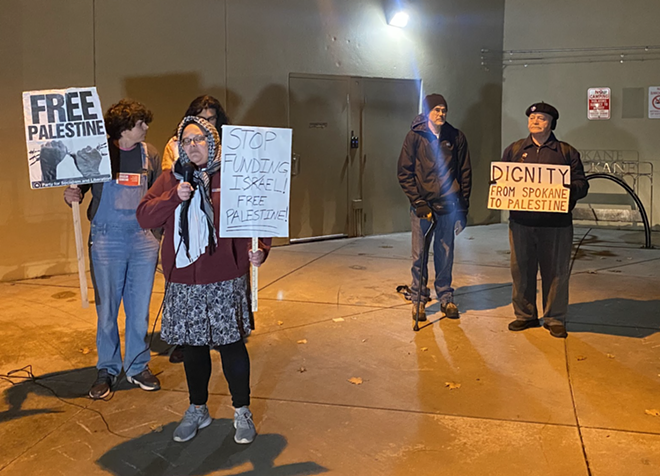
Resolutions have little direct impact on policy, and are primarily a way for cities to express values or put pressure on other levels of government. In recent months, city councils in Seattle, Bellingham and Olympia have passed resolutions that directly call for a cease-fire.
Paul Dillon, who took office in November, is the only Spokane council member to publicly call for a cease-fire. On Jan. 8, Dillon sent a letter to U.S. Rep. Cathy McMorris Rodgers and U.S. Senators Patty Murray and Maria Cantwell urging them to "take concrete steps" towards a lasting cease-fire.
"There is no excuse to justify this massive collective violence," Dillon wrote, highlighting his experience as a healthcare advocate and noting that Israel's siege of Gaza has cut off vital access to food, water and medical supplies and crippled Gaza's healthcare system.
Since Oct. 7, Israel's assault on Gaza has killed more than 24,000 people — a majority of them women and children, according to the local health ministry. That's roughly 1% of Gaza's pre-war population. Israel's bombardment has also displaced more than 80% of Gazans from their homes and prompted South Africa to bring a case accusing Israel of genocide to the International Court of Justice.
McGuckin says he was glad to see Dillon's letter, but adds that "the system is designed to perpetuate violence and perpetuate oppression," and that individual politicians are limited in what they can accomplish.
"Regardless of who's on that council, we will keep the fight up here," McGuckin says. "But I'm encouraged to see that letter. I think it shows that we're winning... the demands we're calling for are the popular opinion."
Bingle says he's still proud of his Oct. 9 resolution, and fully stands behind the language he used. He describes Hamas' attack on Israel, which local officials say killed about 1,200 people, as "truly despicable," and says a statement felt appropriate because the City Council passed a similar resolution shortly after Russia invaded Ukraine in 2021.
But at the same time, Bingle says he's realized that, in the future, the Spokane City Council "probably shouldn't be making statements on international affairs."
"Why don't we focus on the business of the City of Spokane, because there's plenty there that can be addressed," Bingle says.

FREE SPEECH
McGuckin says it's too soon to say how or if the new resolution will impact any future plans for pro-Palestine rallies outside City Hall.
The weekly rallies and public comments have been organized by multiple local groups, including Spokane Community Against Racism and the Party for Socialism and Liberation
The use of public comment time to criticize the resolution has prompted several disputes over City Council’s rules for open forum — a period of time set aside during weekly meetings when up to 15 speakers are given two minutes each to speak their mind on issues relating to city affairs.
Things came to a head on Nov. 6, when Justice Forral, an organizer with SCAR, used their public comment time to directly criticize Bingle. Then-Council President Lori Kinnear told Forral to stop, citing an old council rule that she interpreted as preventing speakers from mentioning other council members by name.
Forral refused, noting that it’s difficult to hold elected officials accountable if speakers aren’t allowed to even say their names. Council members abandoned the meeting as the audience broke out in chants of “Free Palestine.” Activists continued with an ad-hoc public comment session of their own. Kinnear later walked back her interpretation of the rule.
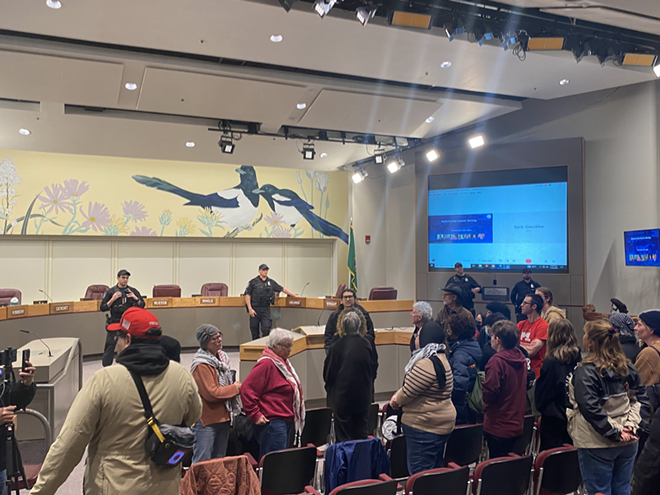
At the start of this year, newly-elected Council President Betsy Wilkerson proposed a series of changes to public comment rules, including moving open forum to only once per month, with slots for 40 speakers.
The proposed changes were immediately controversial. McGuckin, Forral and other activists described it as yet another attempt by City Council to silence free speech.
"This council is trying to change the rules and change our ability to voice our civil liberties, " Forral said during public testimony earlier this month. "You ask us to use our voice until you realize that other people hear it."
Regular public commenters on the conservative side of the political spectrum — like former Proud Boy William Hulings and "Dave M," who has previously clashed with City Council over his refusal to share his last name — were also opposed.
During a Jan. 8 committee meeting, Council members indicated that they might walk back the idea of moving open forum to once per month. Bingle says he's also opposed to limiting open forum to once a month, but that he does support some sort of rule changes to make the process more fair to everyone.
"We do have problems when one group dominates and then people don't get to talk about what they want to talk about," Bingle says. "I obviously am in favor of however we get to receive the most public feedback."
Other proposed changes to open forum — including a ban on audience members standing up during testimony — are still on the table. Current rules prohibit clapping or booing, so audience members will sometimes stand to show support for speakers, or turn their backs to show opposition.
Despite his frustrations over the new Israel-Palestine resolution not going far enough, McGuckin says the fact that he and other activists were invited to join the process is a sign that months of protest are working.
"Us being at the table shows that we are winning," McGuckin says. "It's not like they gave us that position at the table out of the goodness of their hearts. We fought for it. We demanded it."






